Apple is expected to join the 5G revolution in 2020, when the company will purportedly launch an iPhone capable of taking advantage of the next-generation cellular technology, according to a report Friday.
Citing a source familiar with Apple's plans, Fast Company reports Apple intends to use Intel's 5G-capable 8161 modem in an iPhone slated for release in 2020. The handset will be Apple's first product to support the fast 5G standard, which was finalized earlier this year.
Intel is developing the 8161 with a transition chip called the 8060, silicon that will be used to prototype and test 5G in iPhone, sources said. Of note, the 8161 will be fabricated using Intel's 10-nanometer process, fabrication technology that promises boosts in speed and efficiency.
Originally expected to be ready for mass manufacturing in 2016, Intel's 10nm process has seen numerous setbacks as the company tackles production snags. Late last month, interim CEO Bob Swan said progress is being made toward volume production, but the long-delayed chip technology is unlikely to be ready until 2019.
Intel is anticipated to remain Apple's sole baseband chip supplier when 5G does arrive on iPhone, though the tech giant has been "unhappy" with the chipmaker, the report says. Details were left unmentioned, though Fast Company speculates heat dissipation issues with the 8060 modem are to blame for strained relations.
As explained by the source, carriers transitioning to 5G will initially rely on millimeter-wave spectrum, a technology that places a large amount of stress on cellular modems. The higher-than-normal processing requirements generate excess heat and detracts from handset battery life, issues with which Intel is grappling.
While the problem Apple reportedly opened discussions with existing supplier MediaTek to furnish modem chips if Intel is unable to solve the problems.
Just as 4G LTE is the current standard bearer in wireless communications technology, so will 5G see rapid adoption by handset makers in the coming years. Industry stalwart Qualcomm is reportedly pushing up production of its 5G-capable chipsets in anticipation of the first major smartphone releases in 2019.
Apple is typically slow to adopt the fastest cellular standards in its iPhone line. The first iPhone, for example, launched without support for the then-cutting-edge 3G standard, while 4G LTE integration arrived somewhat late with iPhone 5 in 2012.
A 5G-capable iPhone launch in 2020 should ramp well with existing infrastructure rollout plans. Carriers are only in the very early stages of seeding their respective networks with compatible base stations, and proliferation toward widespread availability will be slow going. For example, Verizon this month delivered 5G Home, a home broadband service touted as the world's first commercial 5G deployment.
 Mikey Campbell
Mikey Campbell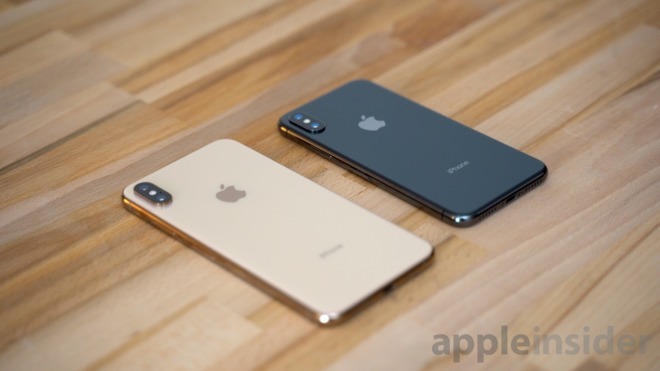


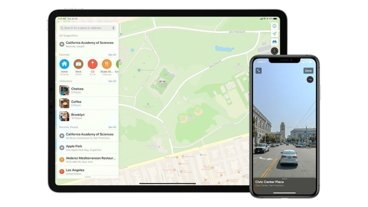

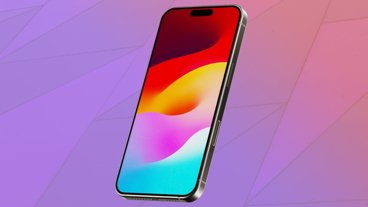


-m.jpg)






 Sponsored Content
Sponsored Content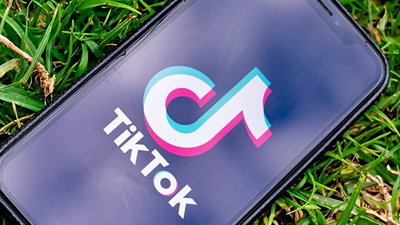
 Malcolm Owen
Malcolm Owen
 William Gallagher
William Gallagher
 Mike Wuerthele
Mike Wuerthele


 Christine McKee
Christine McKee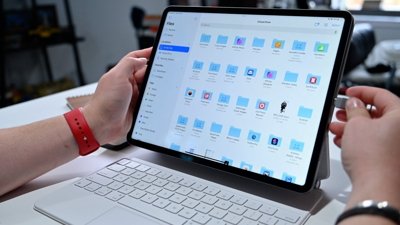
 Andrew Orr
Andrew Orr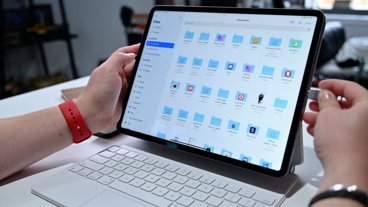







34 Comments
I don’t think 5G will be super popular with cellphones in the beginning. As we develop new experiences and tech, demand will rise, but right now I don’t see why you would need access to 1 gigabit connection in you pocket? Plus as tricky 5G as a technology, even when it becomes widely available, it’ll be like the icing on the cake to have it.
I'd rather see Apple settle their lawsuit with Qualcomm and go back to using their modems. Their cellular modems are far ahead of anyone else.
"While the problem Apple reportedly opened discussions with existing supplier MediaTek to furnish modem chips if Intel is unable to solve the problems."
I miss proofreading.
Yeah, and who's going to finance this with rising phone service prices and data plans? The public?
Q: Which "5G"?
•A wireless voice and data standard defined by the Third Generation Partnership
•A vague marketing term that doesn't necessarily qualify as adhering to the real "5G" standard?
Verizon Launches Proprietary 5G Fixed Wireless Service
A: Yes.
As with "4G", there's a difference between the standard and what is implemented by the various companies involved. IOW: Baloney ahead. Be careful what you're actually buying. I find it useful to keep an eye on the changing history, description and specifications of 5G provided at Wikipedia:
5G@Wikipedia
Meanwhile:
a) There's "5G NR" (New Radio), a preliminary standard from last December, being 'deployed' at a few places around the world. Whether these implementations will work within the finished standard is uncertain.
b) There's Verizon's 'proprietary 5G', referred to in a link above, whatever that is.
c) Testing continues of contrasting 5G send and receive hardware implementations in the field.
d) Health problems potentially caused by exposure to 5G EM frequencies have become of critical concern.
Regarding health problems, just yesterday the National Institute of Health was at last allowed to release a report from their US National Toxicology Program (NTP) proving that
“The $25 million US National Toxicology Program Study has proven again what other studies have shown us that wireless radiation is a Class 1 Human Carcinogen like cigarette smoke and asbestos and should be treated as such. The NTP study proved wireless radiation can cause cancer and it can damage our DNA which can lead to a host of serious diseases. We must warn people and minimize exposure. I along with more than 200 of my colleagues who are expert in the field have called for a moratorium on the roll out of 5G which promises to maximize our exposure to harmful wireless radiation...."
I added bolding for emphasis.
Conclusion: 5G has problems.
We're certainly not going to see the real thing in 2019. We may not see it in 2020. Considering the health implications, we may not see real 5G at all.